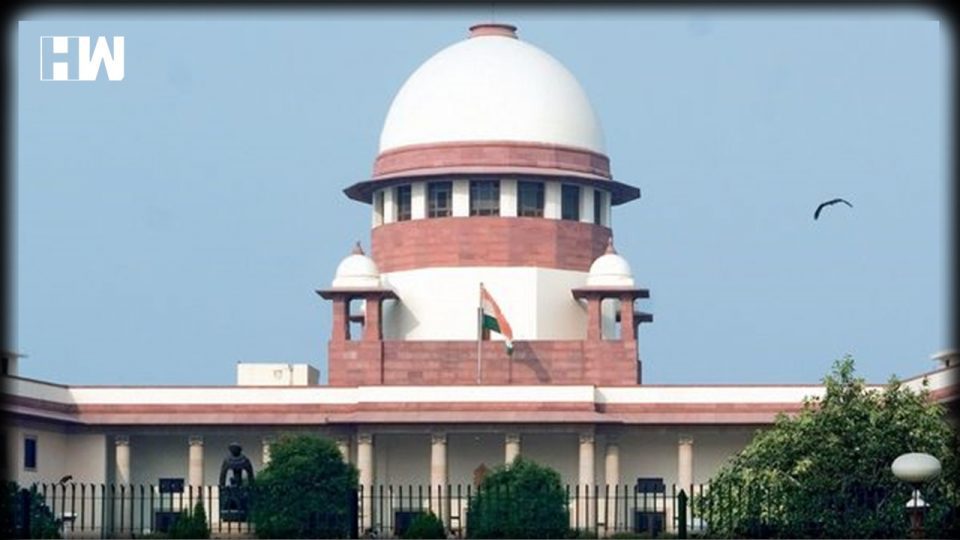New Delhi: The Supreme Court on Friday, has refused to laydown a yardstick and has has refused to dilute conditions for reservations in the promotion of Scheduled Castes (SCs) and Scheduled Tribes (STs) in government jobs. The Supreme Court on Friday has released it’s Judgement on the matter. Centre and State has urged the Supreme Court to settle the confusion regarding the norms for reservation in promotions saying that several appointments have been stalled due to ambiguity.
The Judgement was reserved on October 26 by a bench of justices L Nageswara Rao, Sanjiv Khanna and B.R.Gavai, after hearing out the matter following the reference answered in 2018 by a 5-judge bench in the case Jarnail Singh v. Lachhmi Narain Gupta. As per Live Law Reports, the bench made the following pronouncements today:
1. Court cannot lay down any yardstick to determine inadequacy of representation.
2. State is obligated to collect quantifiable data regarding adequacy of representation.
3. Cadre should be unit for collection for quantifiable data for reservation. The collection cannot be with respect to the entire class/class/group, but it should be relatable to Grade/Category of post to which promotion is sought. Cadre should be the unit for collecting quantifiable data. it would be meaning less if collection of data is w.r.t the entire service.
4. Nagaraj judgment of 2006 would have a prospective effect.
5. The conclusion in BK Pavitra (II) approving the collection of data on the basis of groups and not cadres is contrary to the dictum in Jarnail Singh.
As per the Live Law Reports, Justice Nageswara Rao, the presiding judge of the bench, pronounced the operative portions of the judgment today morning as follows :
“On the basis of arguments, we have divided submission into 6 points. One is yardstick. In the light of Jarnail Singh and Nagaraj, we have said we cannot lay down any yardstick. With respect to the unit for collecting quantifiable data, we have said that the State is obligated to collect quantifiable data. The collection cannot be with respect to the entire class/class/group, but it should be relatable to Grade/Category of post to which promotion is sought. Cadre should be the unit for collecting quantifiable data. It would be meaningless if the collection of data is with respect to the entire service.
We have held that Nagaraj would have prospective effect and thereafter pertaining to the judgment of B.K. Pavitra II, we have held that the conclusion in B.K. Pavitra II approving the collection of data on the basis of groups and not cadres is contrary to the law laid down in Nagaraja and Jarnail SIngh.
For Proportionate representation and test of adequacy – As Jarnail Singh refused to go into that aspect we have not gone into it, we have left it to the state to assess inadequacy of representation of SCs/STs in promotion of post by taking into account relevant factors”.
Time period of review – We said review has to be conducted regarding data for the purpose of determining adequacy of representation and for providing reservation in promotion. And the period of review should be reasonable and left to the Government to set the period of review”.
Justice Rao further said, “We have not expressed any opinion on the merits of individual cases. We have answered only the common issues formulated after hearing the parties. We are listing the matter on 24th Feb. We already have groups given by the Attorney General. Matters of some groups will come upon 24th Feb. We will list the Central Government matters first, we will take up the Contempt Petition against Home Secretary on that day”.
A detailed copy of the judgment is awaited.
The bench had heard Attorney General for India KK Venugopal, Additional Solicitor General Balbir Singh and many other senior lawyers appearing for States and government servants. Issues relating to how the adequacy of representation must be determined, whether it should be determined in proportion to the population percentage of different castes, whether there should be reservation in higher posts in A and B categories, whether a person in reserved category who got appointed on the basis of merit in entry level is entitled to reservation in promotions etc were raised during the hearing.
The Attorney General had opined that the issues that arose for the Court’s consideration in the current batch of pleas were 1) Yardstick to be adopted to arrive at quantifiable data for adequate representation, 2) whether cadre should be taken as a unit, 3) The determination of criteria of ‘efficiency’ of administration and 4) whether the various directions issued by the Court would operate prospectively or retrospectively.
While reserving the judgment, the bench had made it clear that it will not re-open the issues settled by the 5-judge bench in Jarnail Singh.
As an independent media platform, we do not take advertisements from governments and corporate houses. It is you, our readers, who have supported us on our journey to do honest and unbiased journalism. Please contribute, so that we can continue to do the same in future.

